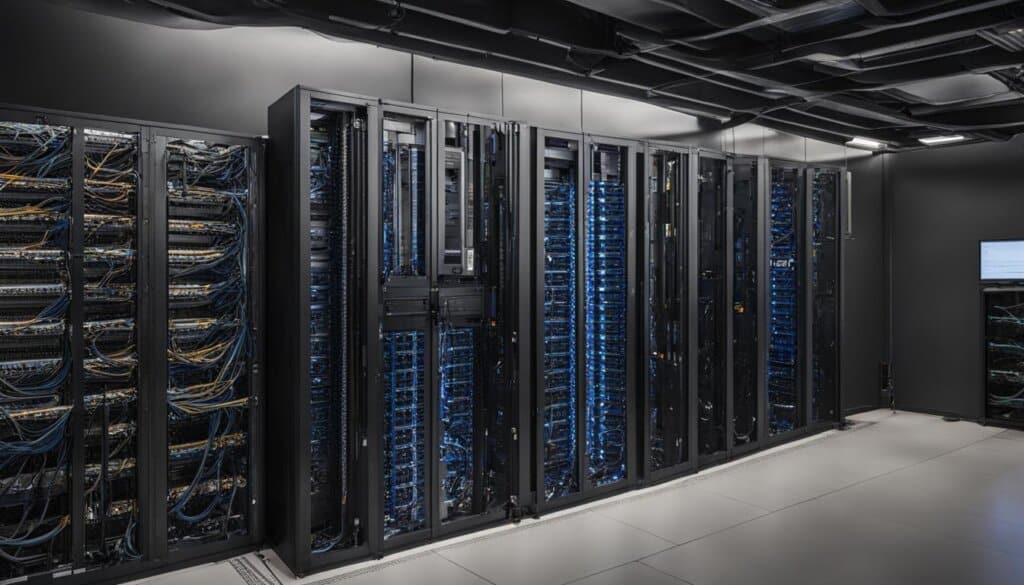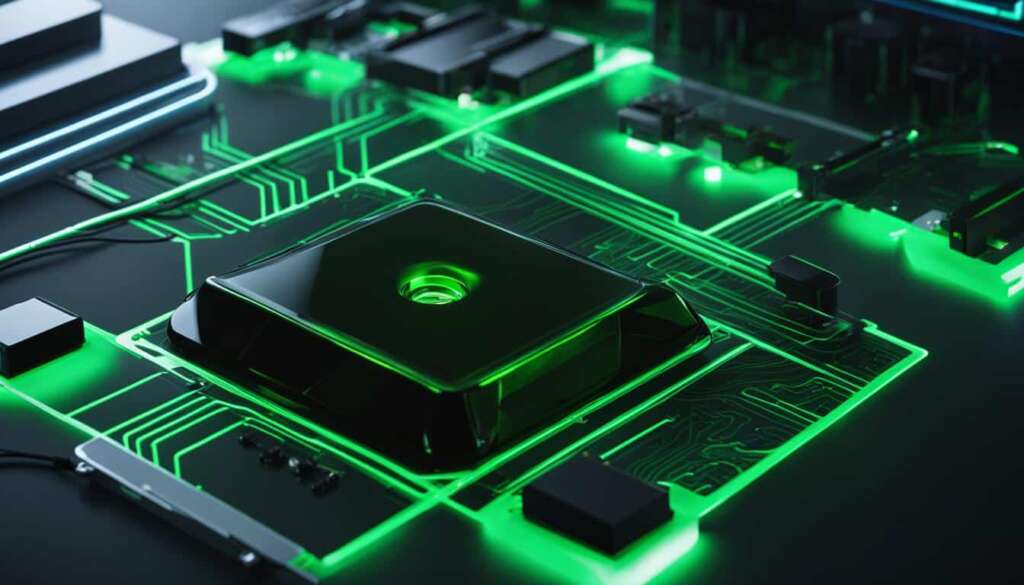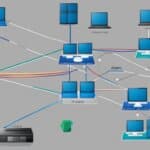Table of Contents
A DHCP Server is a network server that automatically provides and assigns IP addresses, default gateways, and other network parameters to client devices. It simplifies network management by automating the process of assigning IP addresses.
DHCP servers rely on the Dynamic Host Configuration Protocol (DHCP) which responds to broadcast queries by clients. This eliminates the need for network administrators to manually set up every client that joins the network, making it especially beneficial for large networks.
DHCP servers typically assign each client with a unique dynamic IP address, which can change when the client’s lease for that IP address expires.
Using a Router/Switch as a DHCP Server
Some enterprise companies use routers/switches as DHCP servers for their IPv4 networks. This is done when the network administrator needs to quickly set up DHCP capability but does not have access to a dedicated DHCP server. Routers/switches can function as DHCP clients, DHCP relays, or DHCP servers. However, there are limitations to using a router/switch as a DHCP server.
- Resource consumption: Using a router/switch as a DHCP server can put a strain on the network device’s resources, potentially impacting its overall performance.
- Lack of dynamic DNS support: Unlike dedicated DHCP servers, routers/switches may not offer support for dynamic DNS updates, which can make it difficult to maintain accurate and up-to-date DNS records.
- Configuration complexity: Configuring DHCP options on a router/switch can be more challenging compared to dedicated DHCP servers that provide user-friendly interfaces for managing DHCP configurations.
- Limited high availability and redundancy: Routers/switches may not offer built-in high availability features for DHCP services, increasing the risk of DHCP server downtime and potential network disruptions.
- Integration limitations: Integrating a router/switch-based DHCP server with IP address management systems may be limited or require additional configuration steps, making it less efficient for managing IP address assignments.
It is also important to note that managing DHCP bindings and leases across multiple routers may require logging into each device individually, adding complexity to network administration tasks.
“Using a router or switch as a DHCP server can provide a quick solution for setting up DHCP functionality, but it is essential to consider the associated limitations and evaluate whether they align with the specific requirements of the network.”
| Limitations | Description |
|---|---|
| Resource consumption | Using a router/switch as a DHCP server can put a strain on the network device’s resources, potentially impacting its overall performance. |
| Lack of dynamic DNS support | Unlike dedicated DHCP servers, routers/switches may not offer support for dynamic DNS updates, which can make it difficult to maintain accurate and up-to-date DNS records. |
| Configuration complexity | Configuring DHCP options on a router/switch can be more challenging compared to dedicated DHCP servers that provide user-friendly interfaces for managing DHCP configurations. |
| Limited high availability and redundancy | Routers/switches may not offer built-in high availability features for DHCP services, increasing the risk of DHCP server downtime and potential network disruptions. |
| Integration limitations | Integrating a router/switch-based DHCP server with IP address management systems may be limited or require additional configuration steps, making it less efficient for managing IP address assignments. |
The Benefits of a Dedicated DHCP Server
Using a dedicated DHCP server is a better approach than relying on routers/switches for DHCP functionality. A centralized DHCP server supports both DHCP for IPv4 and DHCP for IPv6 at the same time. This provides numerous benefits to enterprise networks.
A dedicated DHCPv6 server integrated into an IP Address Management (IPAM) system offers visibility to IPv6-enabled client nodes. It also allows organizations to track DHCP scopes, manage IP address assignments, and determine scope utilization. DHCP servers provide logging and management interfaces, helping administrators keep track of network resources.
Additionally, dedicated DHCP servers offer redundancy and high availability, ensuring uninterrupted network connectivity. Certified DHCPv6 servers, such as the Infoblox DHCPv6 server, provide a tried and tested solution for enterprise organizations implementing IPv6.

Benefits of a Dedicated DHCP Server:
- Supports both DHCP for IPv4 and DHCP for IPv6
- Offers visibility to IPv6-enabled client nodes
- Enables tracking of DHCP scopes and IP address assignments
- Provides logging and management interfaces
- Ensures redundancy and high availability
- Trusted solution for implementing IPv6
How DHCP Works and Its Key Functions
The Dynamic Host Configuration Protocol (DHCP) operates at the application layer of the TCP/IP stack. It plays a crucial role in dynamically assigning IP addresses to DHCP clients, simplifying the management of network configurations. In addition to IP address assignment, DHCP servers also allocate subnet mask information, default gateway IP addresses, and DNS addresses to DHCP clients.
When a DHCP client connects to a network, it broadcasts a request to the DHCP server, seeking network configuration information. The DHCP server responds by providing the necessary IP configuration, including the assigned IP address and a lease time. This lease time specifies how long the client can utilize the assigned IP address. When the lease approaches expiration, the client contacts the DHCP server to renew the lease. If the server responds, the lease is extended.
Furthermore, DHCP servers assign other essential networking parameters such as subnet masks, default gateways, and DNS servers. Whether it’s a small local network or a large enterprise network, DHCP offers automated and centralized management of IP addresses, ensuring efficient network connectivity and resource utilization.
FAQ
What is a DHCP server?
A DHCP server is a network server that automatically provides and assigns IP addresses, default gateways, and other network parameters to client devices. It simplifies network management by automating the process of assigning IP addresses.
Can routers/switches be used as DHCP servers?
Yes, routers/switches can function as DHCP servers for enterprise companies’ IPv4 networks. This is done when the network administrator needs to quickly set up DHCP capability but does not have access to a dedicated DHCP server.
What limitations are associated with using a router/switch as a DHCP server?
Limitations of using a router/switch as a DHCP server include consuming resources on the network device, lack of support for dynamic DNS, difficulty in configuring DHCP options, lack of high availability or redundancy, and limited integration with IP address management systems.
What are the benefits of a dedicated DHCP server?
A dedicated DHCP server is a better approach than relying on routers/switches for DHCP functionality. It supports both DHCP for IPv4 and DHCP for IPv6 at the same time, offers visibility to IPv6-enabled client nodes, allows organizations to track DHCP scopes, manage IP address assignments, and determine scope utilization. Dedicated DHCP servers also provide logging and management interfaces and offer redundancy and high availability.
How does DHCP work and what are its key functions?
DHCP runs at the application layer of the TCP/IP stack and dynamically assigns IP addresses to DHCP clients. In addition to IP addresses, DHCP servers also allocate subnet mask information, default gateway IP addresses, and DNS addresses to DHCP clients. DHCP clients broadcast a request to the DHCP server when they connect to a network, requesting network configuration information. The DHCP server responds by providing the necessary IP configuration along with a lease time. This lease time determines how long the client can use the assigned IP address. To renew the lease, the client contacts the DHCP server, and if the server responds, the lease is extended. Additionally, DHCP servers assign other networking parameters such as subnet masks, default gateways, and DNS servers. DHCP can be used in both small local networks and large enterprise networks, providing automated and centralized management of IP addresses.












